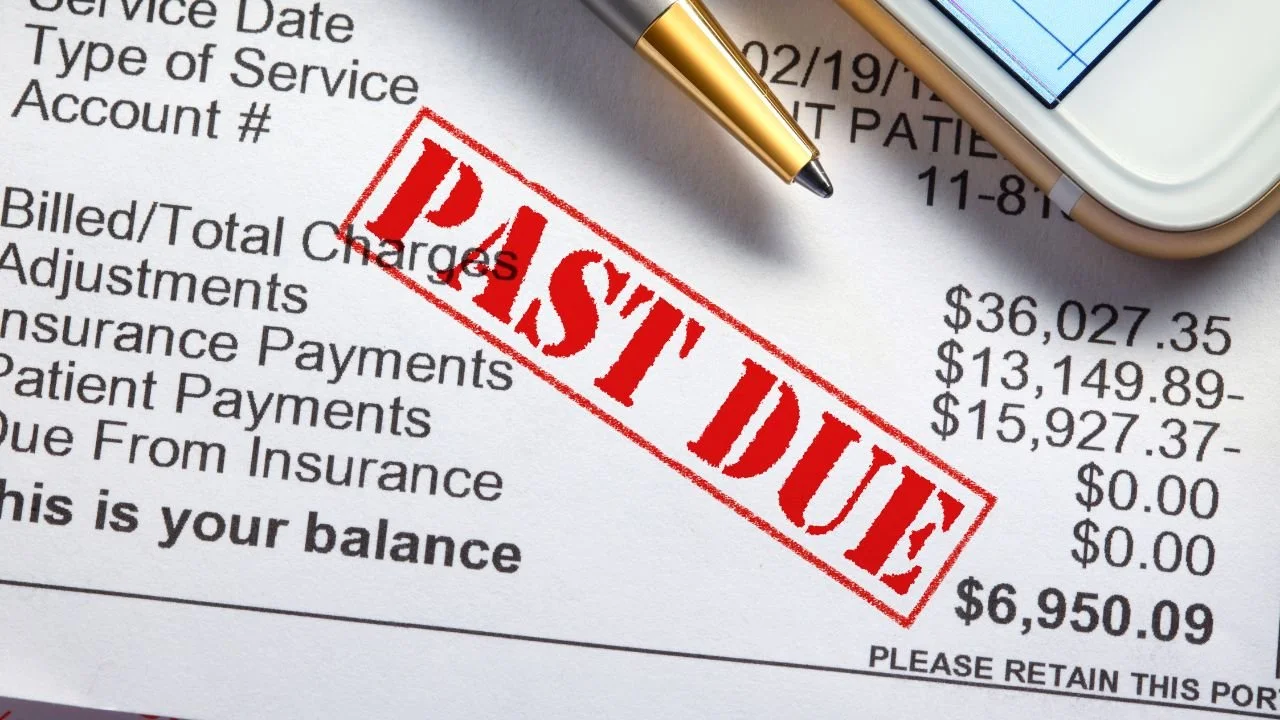How Long Until Medical Bills go to Collections?
It’s one of the most stressful pieces of mail to get: a medical bill you can’t immediately pay. Maybe you’re tight on funds right now, or you thought your insurance would cover more than it did.
The following question probably comes to mind: how much time do you have before that bill gets sent to a collection agency? And if that does happen, what does it mean for your credit report?
This guide breaks down the typical timelines, what happens when medical debt enters collections, and the steps you can take to protect yourself.
When Providers Send Bills to Collections
In most cases, medical providers wait about 90 to 120 days before sending an unpaid bill to collections. This is not a federal legal requirement. Instead, it is an industry standard that many providers follow.
This 3–4 month period gives time for:
Insurance companies to process claims or appeals
The provider’s billing department to send reminders
Patients to set up payment plans
That said, timelines vary. Some offices may send bills to collections as early as 60 days, while larger hospitals sometimes wait longer. A few states have passed their own laws with stricter rules. For example, Maryland now requires a 240-day delay before certain medical debts can be sent to collections.
It’s also important to understand that being sent to collections is not the same thing as being reported to the credit bureaus. Collections can begin after a few months of nonpayment, while reporting to your credit file usually happens later. We’ll cover credit reporting more fully later in this article.
What Happens When Medical Debt Goes to Collections
Once a medical office sends a delinquent bill to collections, two important things may follow. First, you will likely begin receiving communication from a debt collector. Second, if the debt is not resolved within a year, it may be reported on your credit report.
Contact From a Debt Collector
Once a bill is placed with a collection agency, expect phone calls and letters. By law, collectors must identify themselves and state that they are attempting to collect a debt. If you don’t hear this during a call or see it in a written notice, it is a violation of your rights. This disclosure is known as the Mini Miranda and it’s one of many protections under the Fair Debt Collection Practices Act (FDCPA).
Under the FDCPA, debt collectors cannot harass you, make false threats, call excessively, or take other unfair and deceptive actions. It is worth reviewing the FDCPA so you fully understand what collectors legally can and cannot do.
Reporting to Credit Bureaus
Just because a medical debt is sent to collections does not mean it will automatically appear on your credit report. In 2023, the three major credit bureaus (Equifax, Experian and Trans Union) adopted a policy known as the one-year rule. Under this policy, medical debt generally cannot be reported until it is at least one year old.
In addition, paid medical debts no longer appear on credit reports, and balances under $500 are excluded entirely. If you notice a medical debt on your credit report that is already paid, under $500 or less than a year old, you should dispute it with the credit bureaus and get it removed from your credit report immediately.
Earlier in 2025, the CFPB attempted to ban medical debt reporting altogether, but that rule was struck down in federal court. As it stands now, medical debts over $500 and more than a year old can still be reported, and they may remain on your credit file for up to seven years. Even if you later pay the bill, the collection account does not disappear right away.
How Long Can a Medical Debt Be Collected?
So far, this article has addressed two issues: (1) how long until a past-due medical bill is sent to collections, and (2) under what conditions a medical debt can be reported on your credit report. There is also a third and equally important question: how long can a collector sue you for an unpaid medical bill?
This depends on your state’s statute of limitations. Every state has its own rules on how long a creditor has to bring a lawsuit. In most cases, the relevant law is the statute of limitations for breach of contract, though some states have separate provisions specifically for debt collection.
A tactic I recommend to clients is to identify what type of entity is contacting them about the debt. If it’s a debt collector then you are unlikely to be sued imminently. Debt collectors are not lawyers and therefore do not have the ability to bring you into court.
On the other hand, if you’re receiving notices from a collection law firm, your chances of being sued are much higher. The creditor (medical provider you owe the debt to) has decided to be more aggressive in its collection efforts and sent your debt to attorneys who specialize in filing lawsuits against debtors. This would be a good time for you to consult with an attorney to understand your rights.
What You Can Do If You’re Facing Medical Debt Collections
If you’re worried that a medical bill is heading to collections, there’s a few things you can do before it gets to that point. Ask your provider for an itemized bill and confirm that insurance payments and adjustments were applied correctly. Insurance companies sometimes mishandle claims or wrongly deny coverage, which is illegal. You can also contact your provider to request a payment plan or financial assistance.
If you are already hearing from a debt collector, you have the right under the FDCPA to request validation of the debt. When you send this request, the collector must provide proof that the debt is legitimate and that they have the right to collect it. It’s also important to keep your credit report in mind. If a medical debt is being reported but is already paid, under $500, or less than a year old, you should dispute it with the credit bureaus to have it removed.
Dealing with medical debt is stressful, but knowing your rights and taking action can make the process far more manageable. If you have questions about your situation or believe a collector has crossed the line, you can reach out to Reznik Consumer Law to discuss your options.





